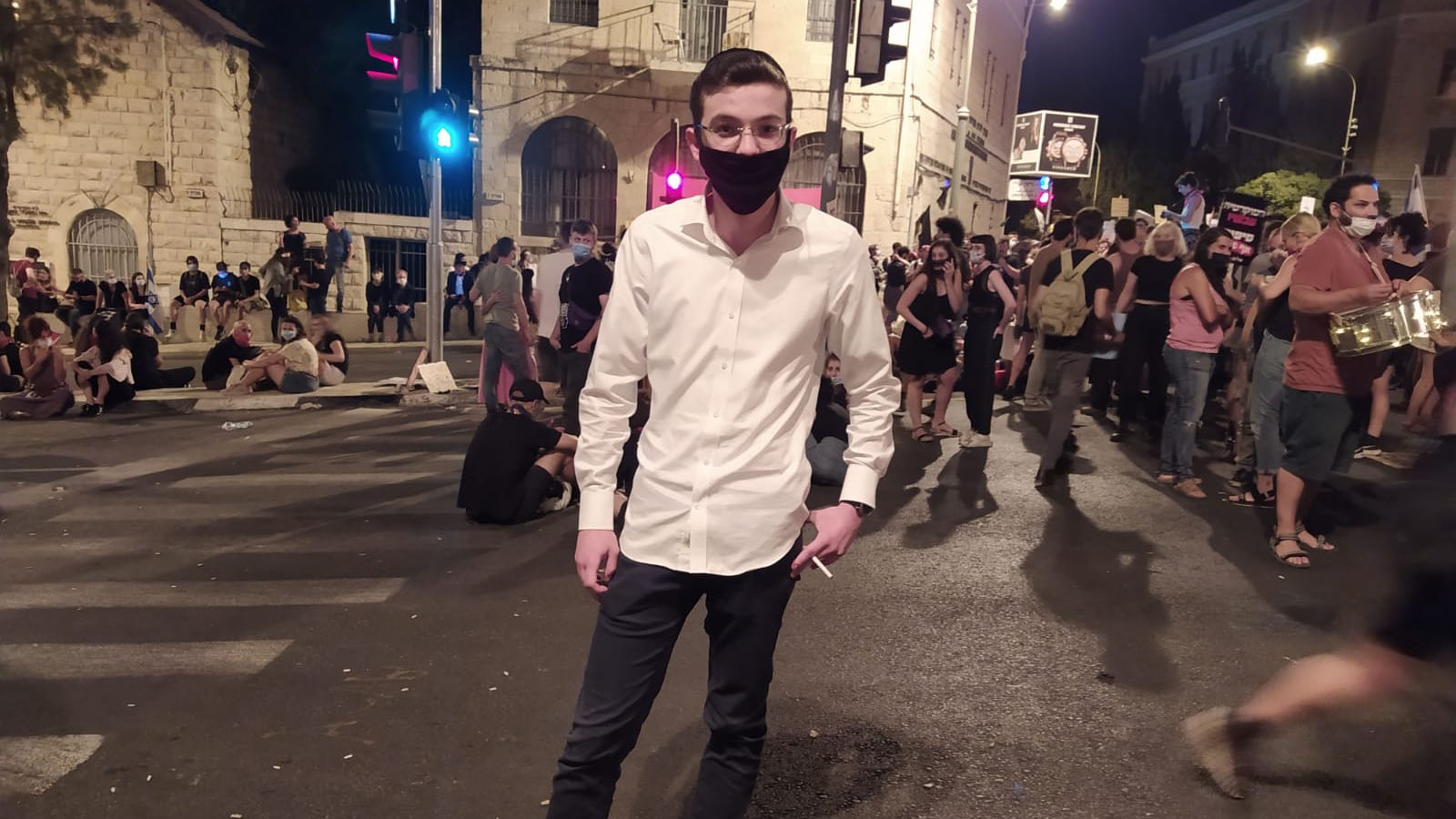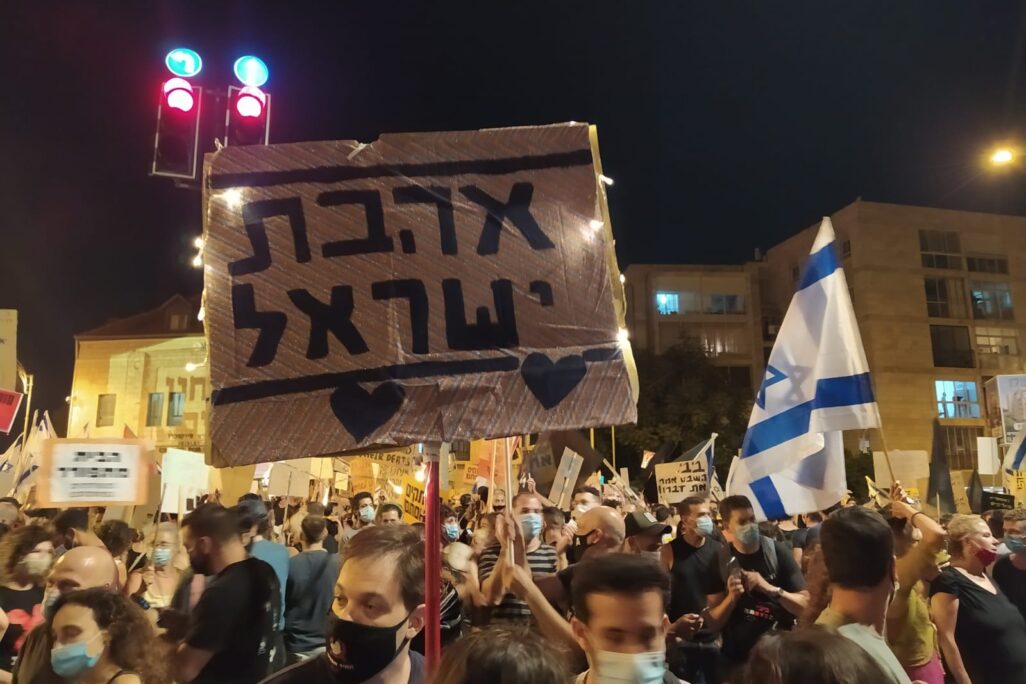
Israel's political protests have been steadily growing and proliferating for almost a month now. Last Saturday, participation in the central protest in front of the Prime Minister's official residence in Jerusalem was estimated to be 10,000, turnout at Netanyahu's private residency in Caesarea was the highest to date, and hundreds waved black flags on top of bridges across the country. Who are the Israelis who come out every week after Shabbat ends at sundown to protest in the thick of a pandemic, and what do they want?
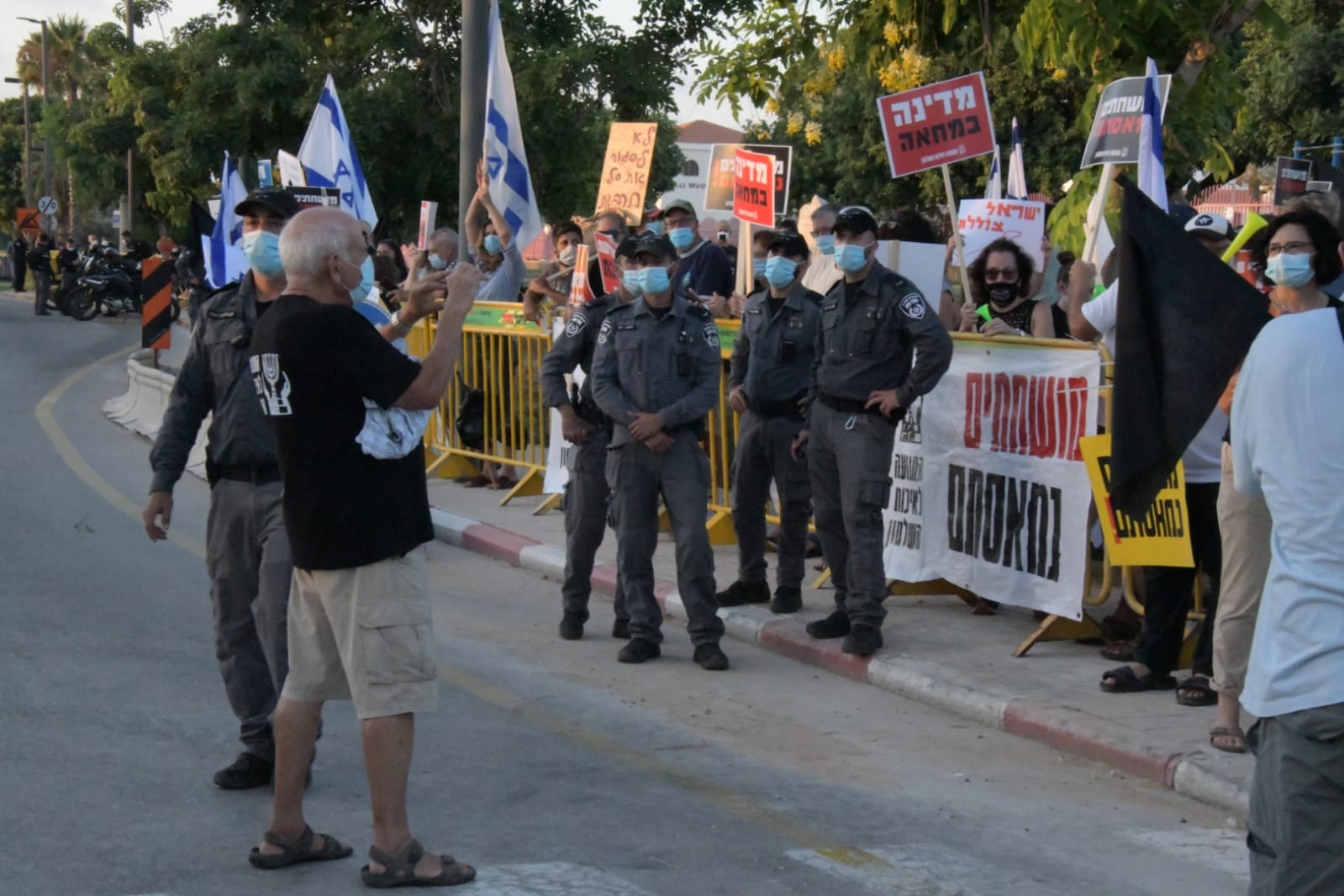
It is not clear who are the leaders of these protests, but it is clear that each and every one of the protesters want to convey their own message. It is less common to find signs that were a result of an official mass production – it's all homemade. They wrote on signs, on flags, on their bodies, on face masks, on shirts, and even on stickers, which seem to be making a comeback. Some wrote one word, like ‘enough,’ ‘shame,’ ‘hope’ or ‘love’. Others wrote slogans like “Bibi go home.” Some of the signs had jokes and wisecracks, and others real manifestos, with quotes from Biblical or Mishnaic sources, or from heroes like Herzl, Gandhi and even Noa Kirel.
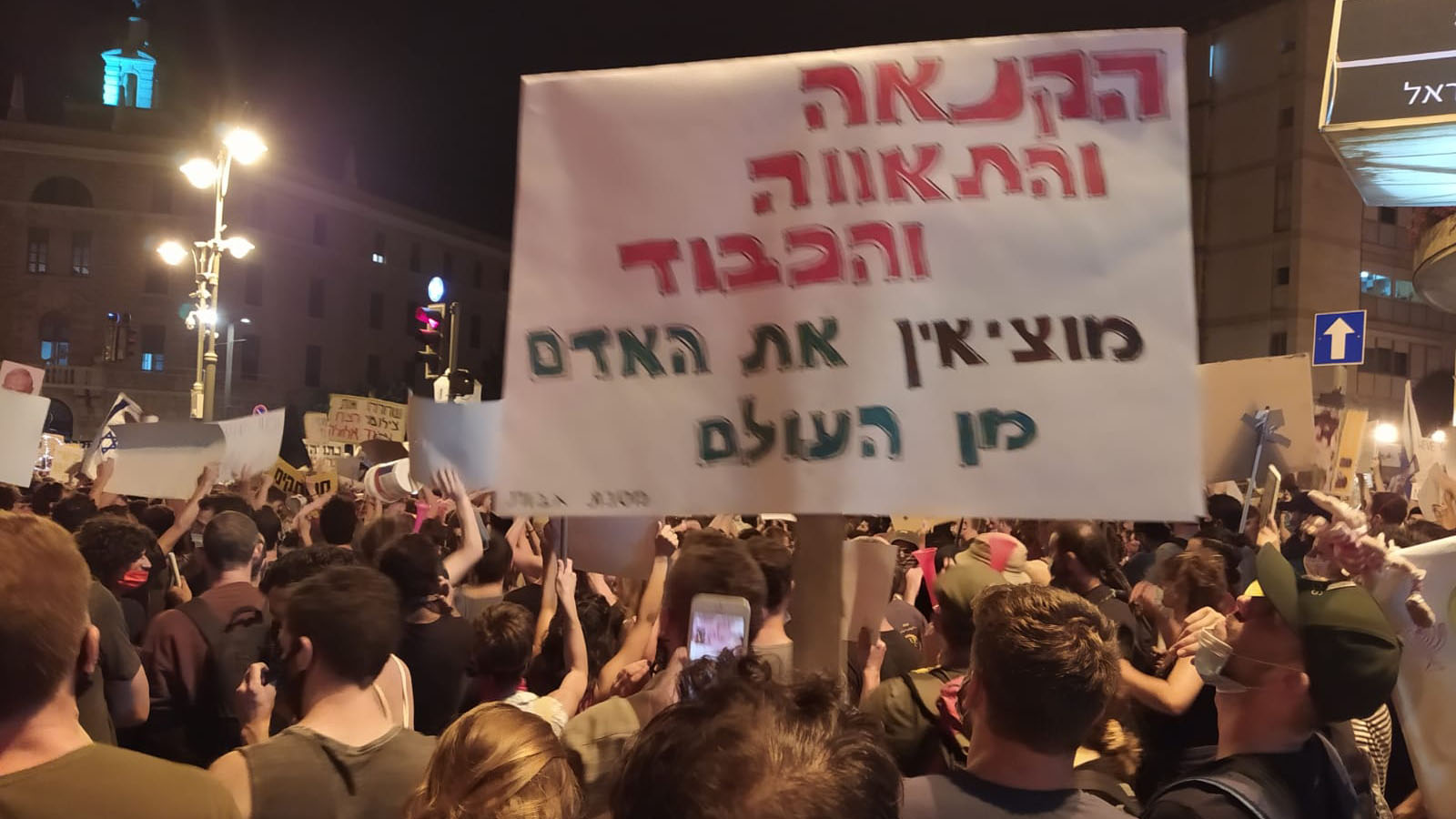
The street in front of the official residence of the longest serving Prime Minister has been “occupied” in recent weeks by art exhibits, vuvuzelas, Israeli flags, black flags, costumes, and plenty of rage. The space has not only been occupied, it has also been cleaned. Some of the protesters swept the area with brooms, before the water cannons showed up, simply to keep the streets clean.
Acting outside the box
The institutionalized media fails to frame the protest, and not by chance. Thousands of people and a variety of organizations are demonstrating, and the only thing that connects them is a deep, growing sense of discomfort with the situation.
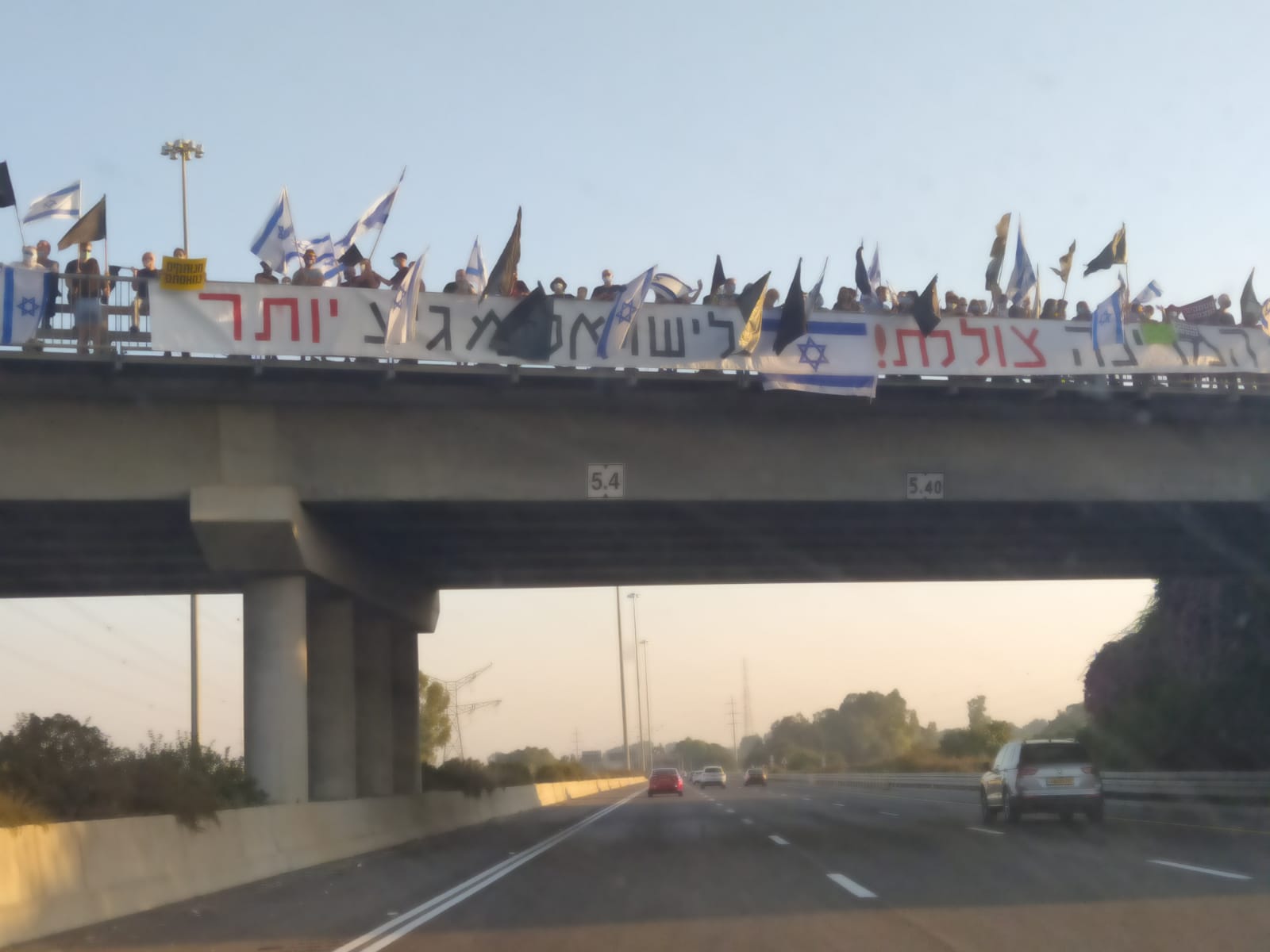
The media requires that protesters define what the "situation" is and mark goals and objectives. But is the same demand directed at this huge government, which consists of at least five sectors of Israeli society? The protest is the shadow government of the Netanyahu and Gantz government, it is the civilian corona cabinet, it is the reconciliation cabinet.
The personal is political
When five young women decided to use their bodies to convey a message at a demonstration two weeks ago, they were well aware of how explosive this would be in today's Israeli society. These young women are part of a generation to whom it is clear, in the deepest way, that the personal is political.
K. chose to be interviewed anonymously so that the messages, and not her character, would be at the forefront. She arrived at Balfour Street last Thursday with four of her friends. They waved signs that read 'Boobs are better photographed than–', took off their shirts, and revealed the continuation of the message written on their bodies: 'Police violence,” 'Occupation,' and 'Administrative arrests'.
"We wanted to bring up the violence that the occupation creates, in public discourse," says K. "Unfortunately, the public and media are blind to police violence unless it comes on breasts or through other privileges."
"In a better world," she adds, "I wouldn’t need to use my body to talk about things unrelated to my body. The media would highlight underprivileged populations, what happens after the cameras leave, and what happens where there are cameras and nobody is willing to show us what those cameras are documenting."
Itzik, 45, from a moshav near Rehovot, came because he was fighting for his home: "Although Netanyahu is the son of a historian, he used an antisemitic image (disease spreaders) in his speech, and didn’t blink an eye. I came here tonight, like last week, because it seems to me that we’ve e crossed a line. This is not the time to sit in the stands, we must go down to the field. I am not talking about indictments, Netanyahu has dragged us to a place we did not think we would be, we are not going anywhere and we're fighting for our home."
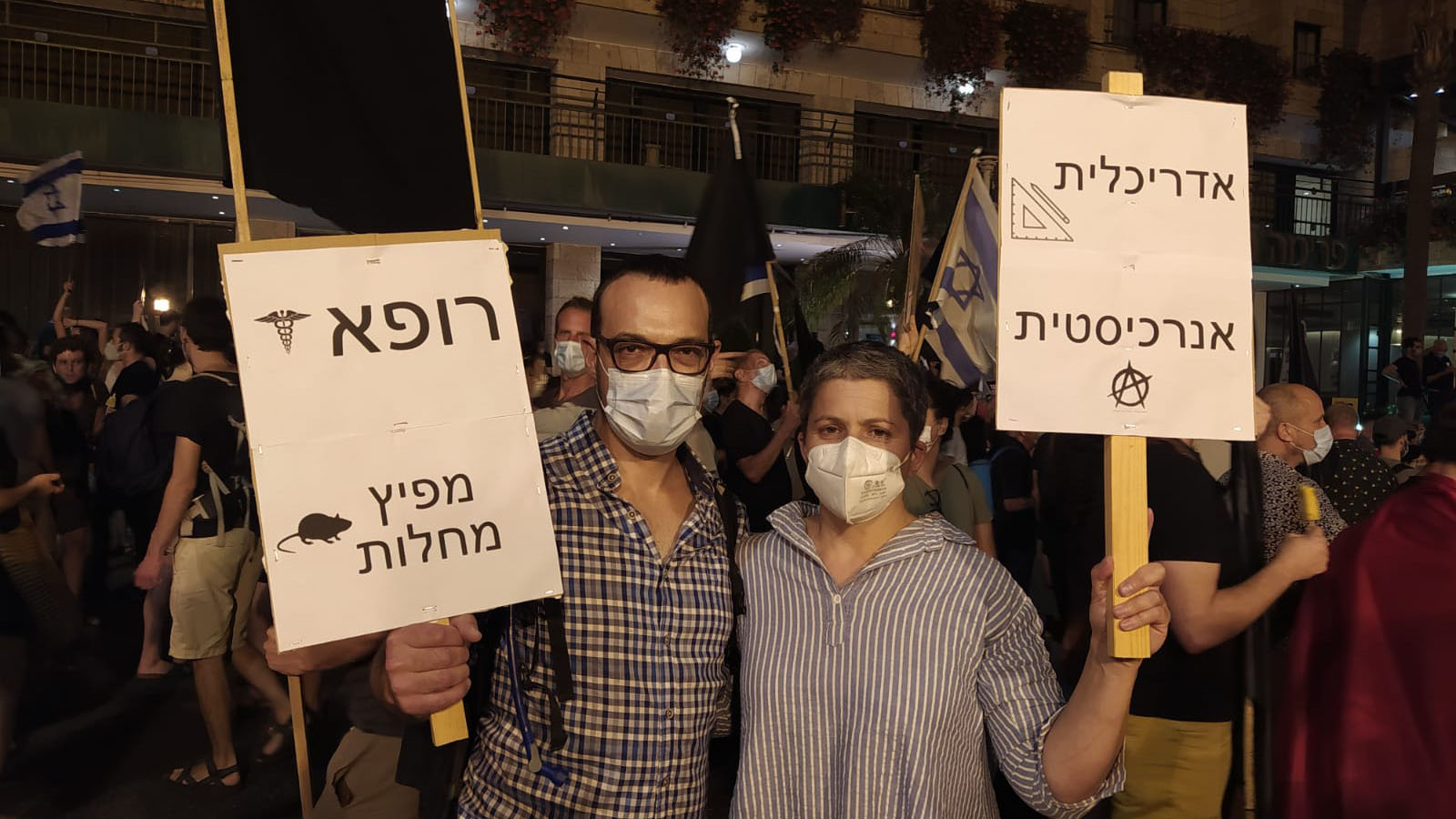
Chana, from Jerusalem, came to inspire hope: "This is a protest of all the people, a multi-generational protest, and it is encouraging. The state must not be given up on, it belongs to us, not to the dictators. We must continue, and we must not lose hope."
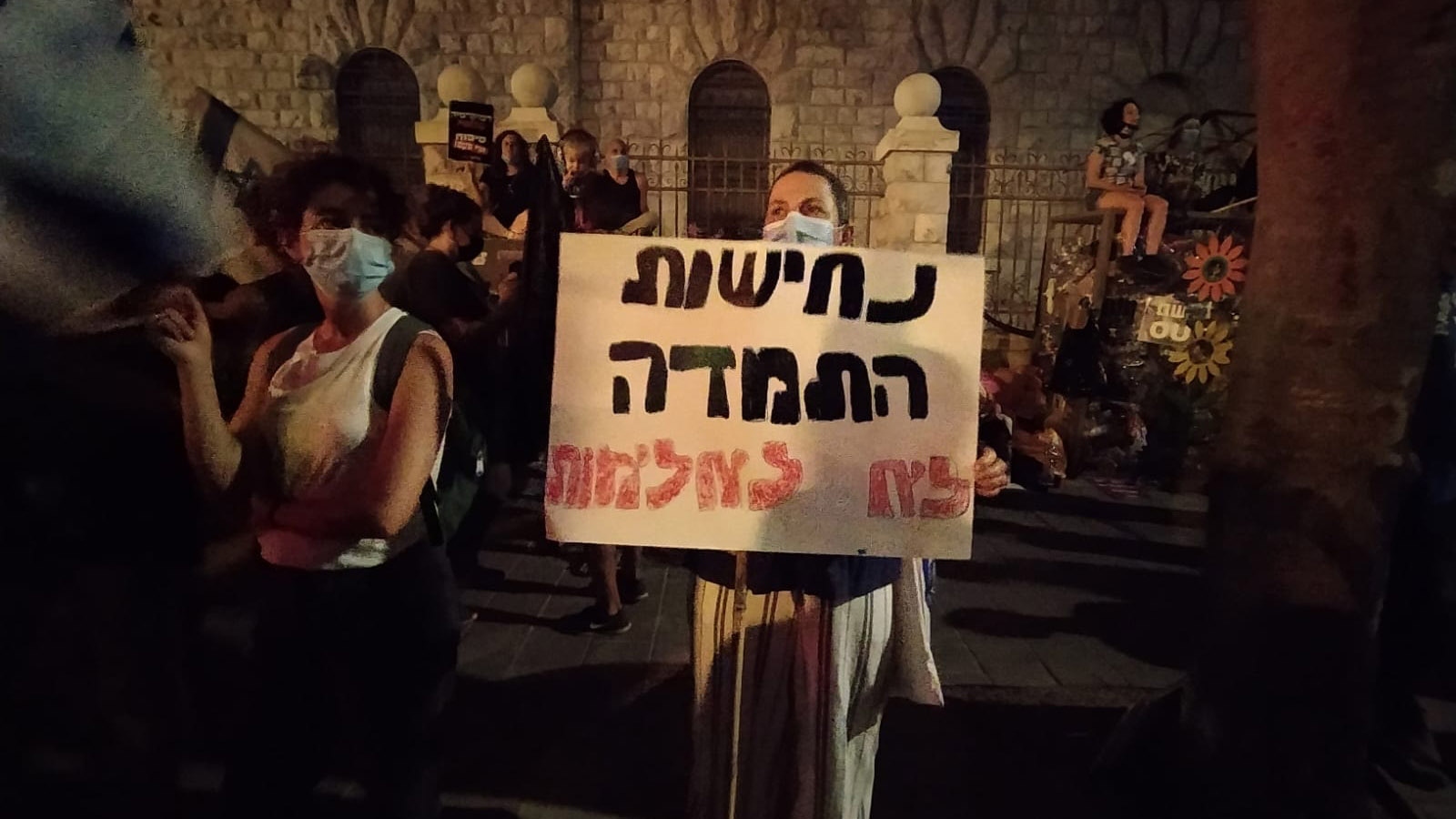
Yael, from Haifa, brought her daughters with her: "I run an NGO and I know how hard it is to get the budgets to help people who just want to find a job. It feels like it is all because the Prime minister is detached from reality and is busy with taking care of his own affairs. I brought the girls so they will learn that we can resist things we oppose, in a democratic and legשl way."
Yonatan, 17, came to the counter-demonstration because it is important for him to support Netanyahu: "I came because the state is important to me. In two days,I have a matriculation in mathematics. It hurts me that people look at the state with hatred. The other side are also my brothers, but I’m not sure they think so. They see us with such hatred. There are extremists on both sides, but the other side is much more radical. Hopefully it will end well. The right wing is indifferent and it is sad."
Nurit and Gil, 65 and 67, from Mevaseret Zion, came with a warning: "People feel despair and loss, because of the management of the coronavirus. We are suffering, our souls are bleeding. This sign (reading blood is on your head) predicts something about what happened and what will happen."
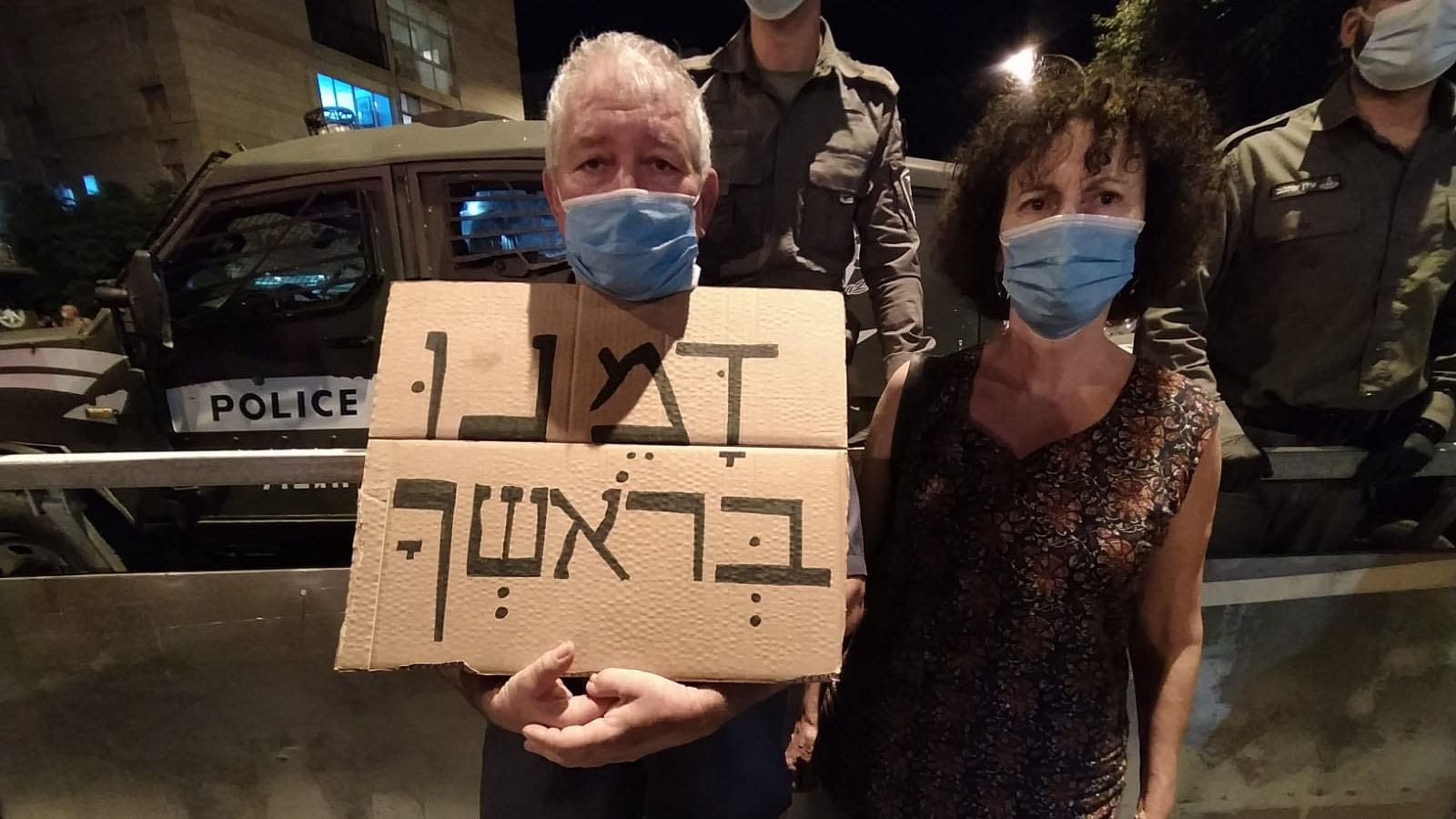
Ora, 70, from Jerusalem, came to feed her children: "You are not allowed to work. I have an old-age pension, but it is difficult for me to live on 3,000 shekel a month with a son who has cancer and two sick daughters at home, so sometimes I sell beverages. The last time was on Purim. Thank God there are demonstrations, I wish it would never end. It is not easy at my age to pack up and carry the beverages, but good people helped me. Hopefully everything will be fine, and that there will be no hatred between Jews."
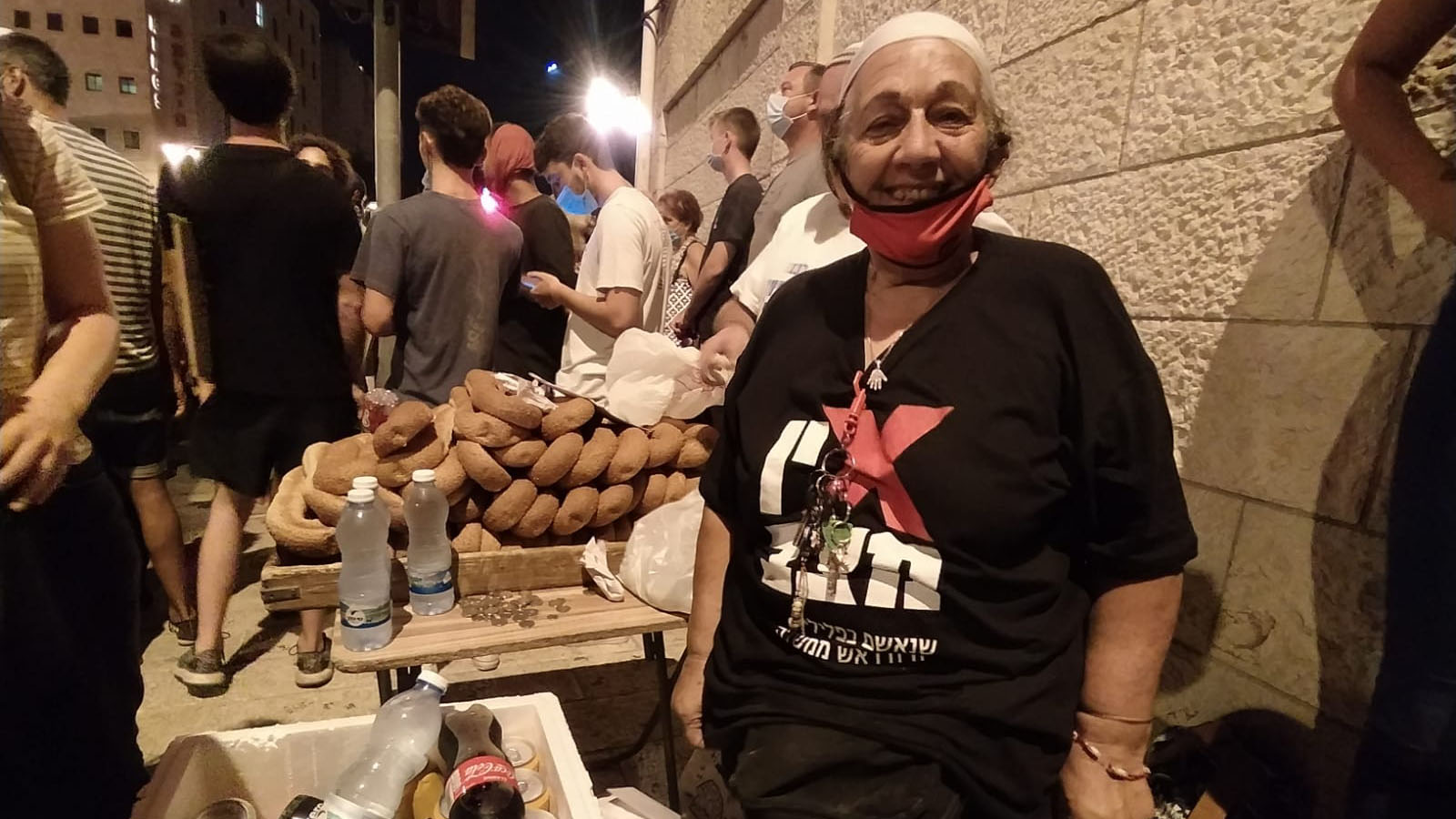
Tamar, 30, from Jerusalem, came because she was tired of it all: "This is a government of corrupt people, but it will not help to replace only Bibi. The system does not work, the method does not work. The people we voted for do not keep promises, it is not just corrupt Bibi. We need real democracy, ministers who keep their word."
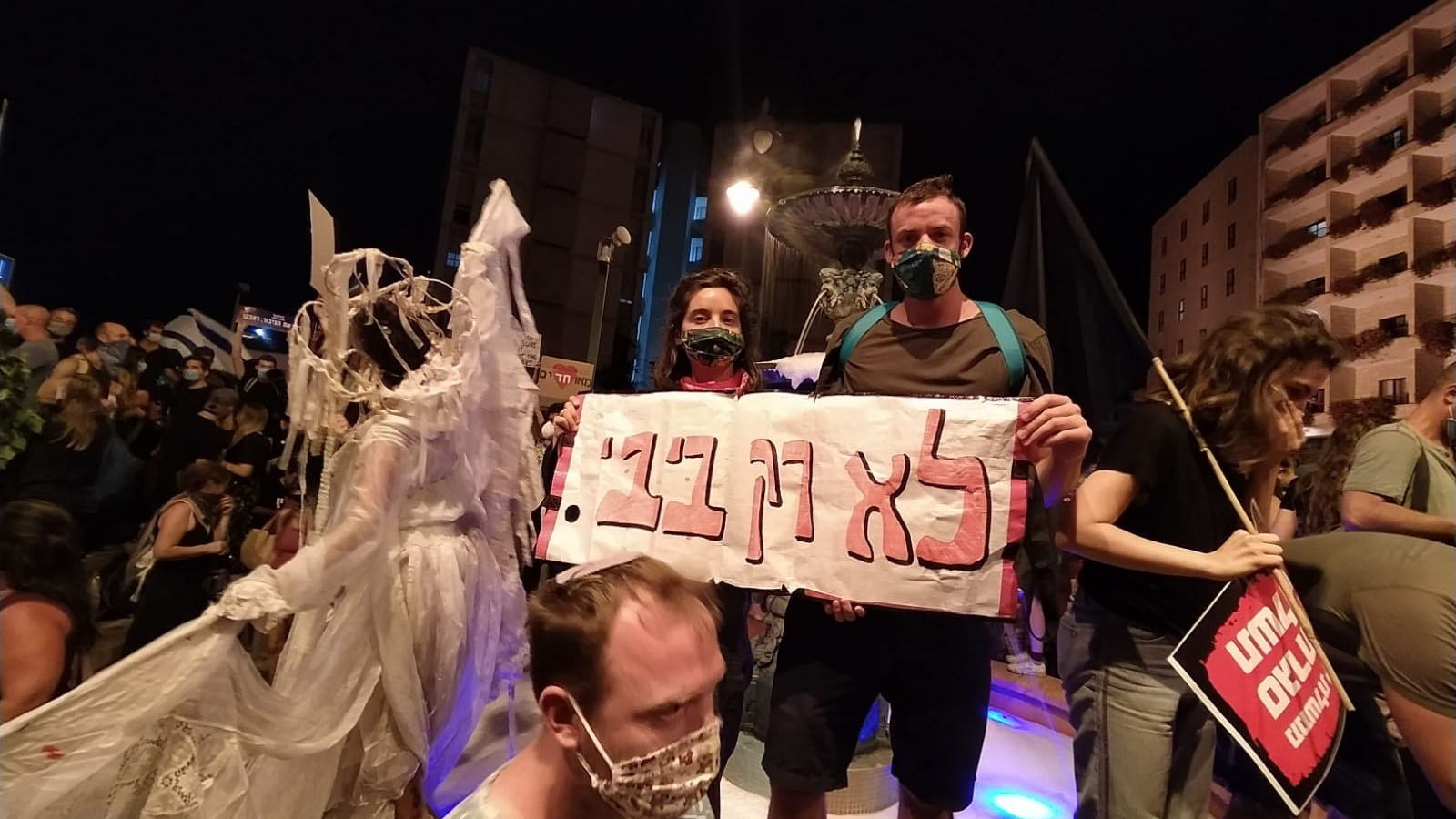
Elihai Amar, 25, from Sderot, came because he sees what is happening: "I am self-employed, a lighting technician who sits at home with no work, and I have not had a livelihood for five months. The state laughed at us with the grants. I received 15,000 shekels, but that’s nothing for five months. Talk to us like equals, without blaming the officials.They know that bureaucracy is not good, if someone owes them, they know how to seize it right away, but when the state needs to give money to citizens, does it know how? I’m not protesting against Bibi – I’m protesting against the laws, against the government. Gantz also shot down the law for the self-employed."
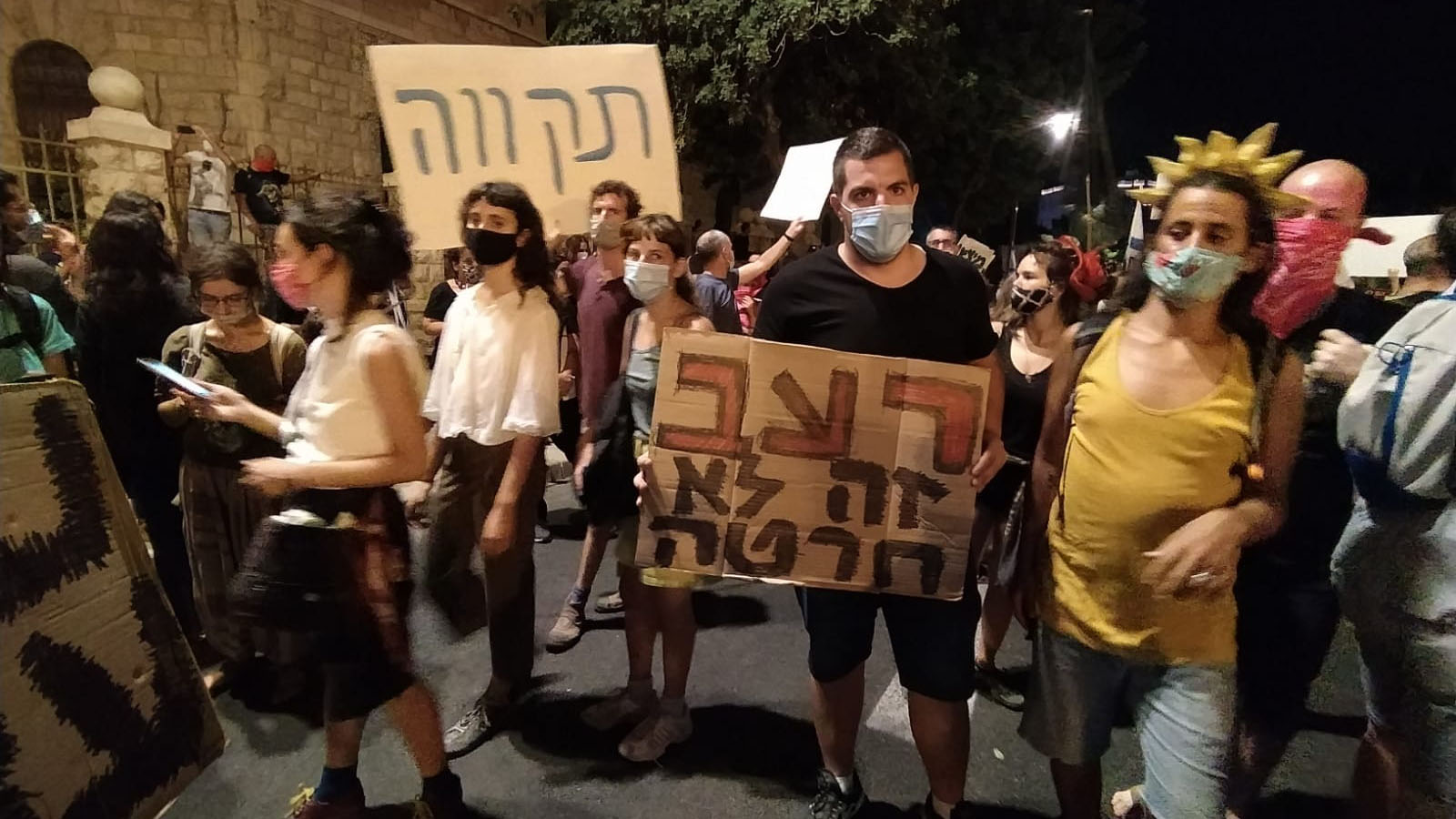
Oded, 71, from Tel Aviv-Yafo, came because his pain is political: "I come to the protests every day. My prime minister told me that I am a disease spreader – if he is worried about sanitation, then he is the infection that needs to be cleaned up. I took it personally, everyone knows who said that Jews spread diseases, isn’t he ashamed to say that? I stood on the hill in front of the Prime Minister's Office in March ‘74, and after a while Golda Meir went home. Everything is political, both political protest and people's pain."
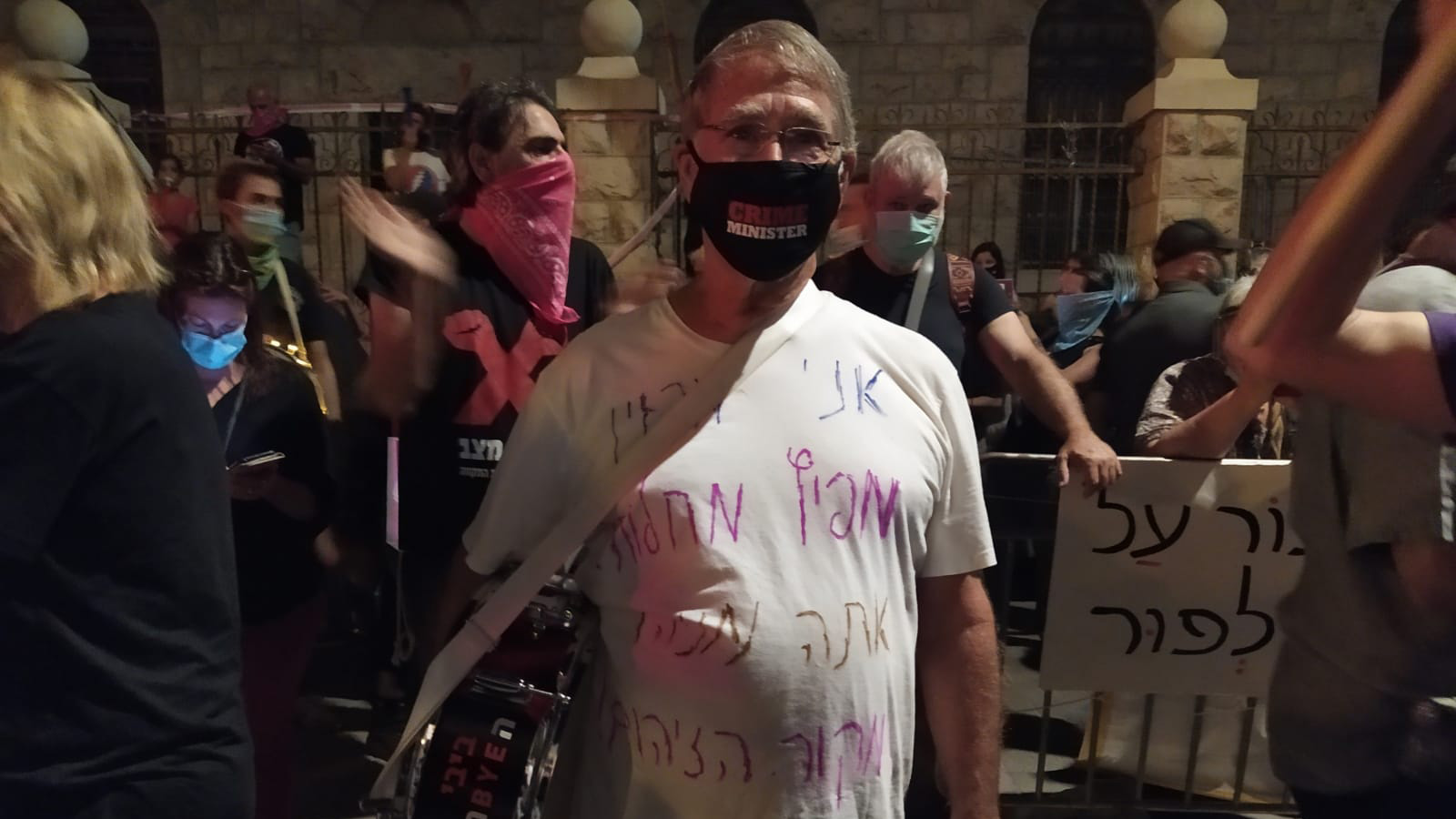
Omri, 35, from Ashkelon, came because there is an atmosphere of change: "I came because Bibi has to go home, he and all his awful ministers, anyone would be a better prime minister than him. I’m tired of these dark forces. I’ve been at six demonstrations, and each demonstration is bigger than the next. And there is an atmosphere of change."
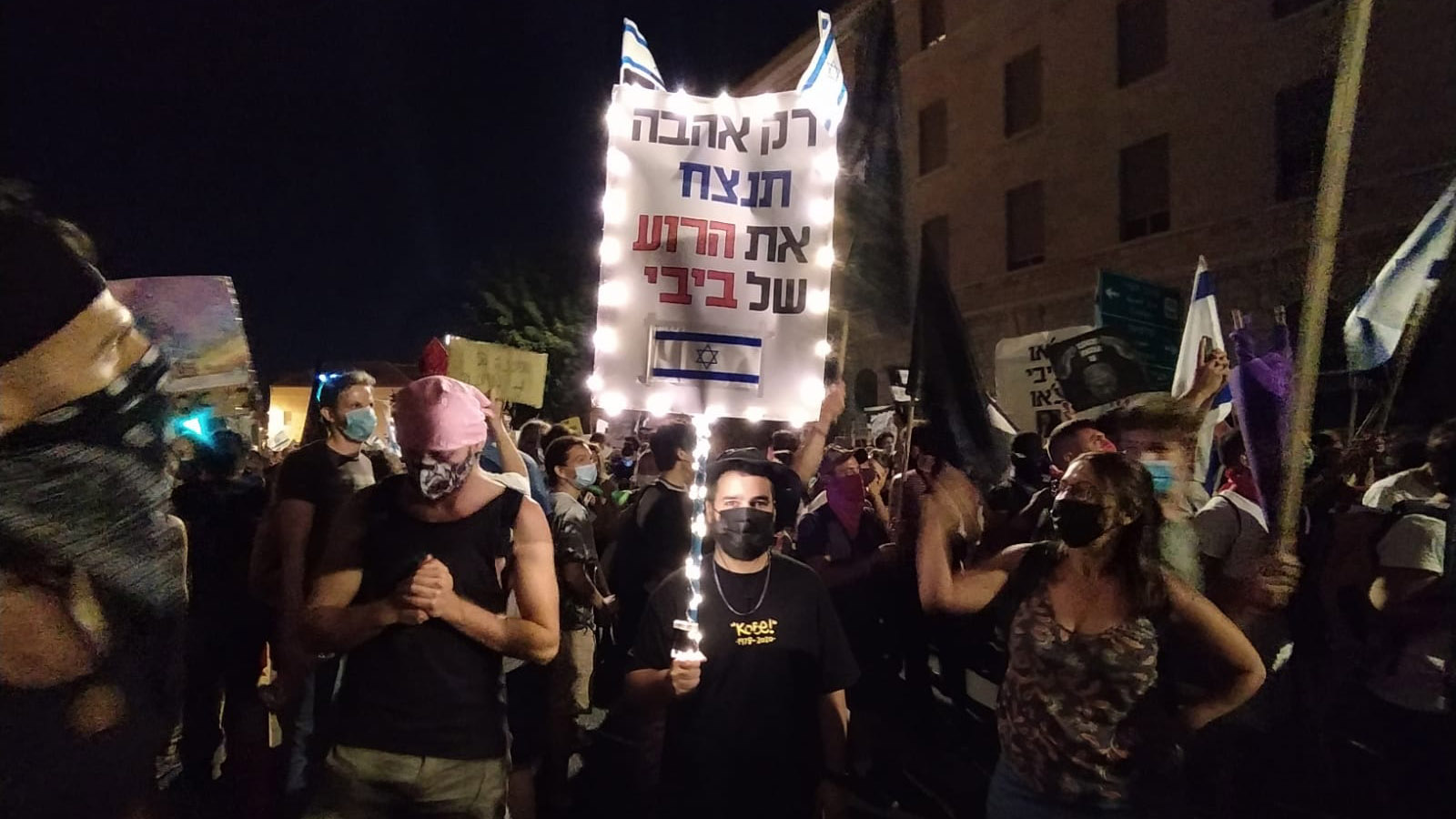
Roni and Noa, 25, from Tel Aviv, came because they were the daughters of the winter of ‘95: “We came for our unemployed friends. The purpose of the demonstration is to correct the government that does not see what is happening in the people, and is disconnected, not listening. Bibi needs to go home, and a government will be formed that remembers why it is here. My parents deserve to live with dignity. Young people were hurt, but our parents more so."
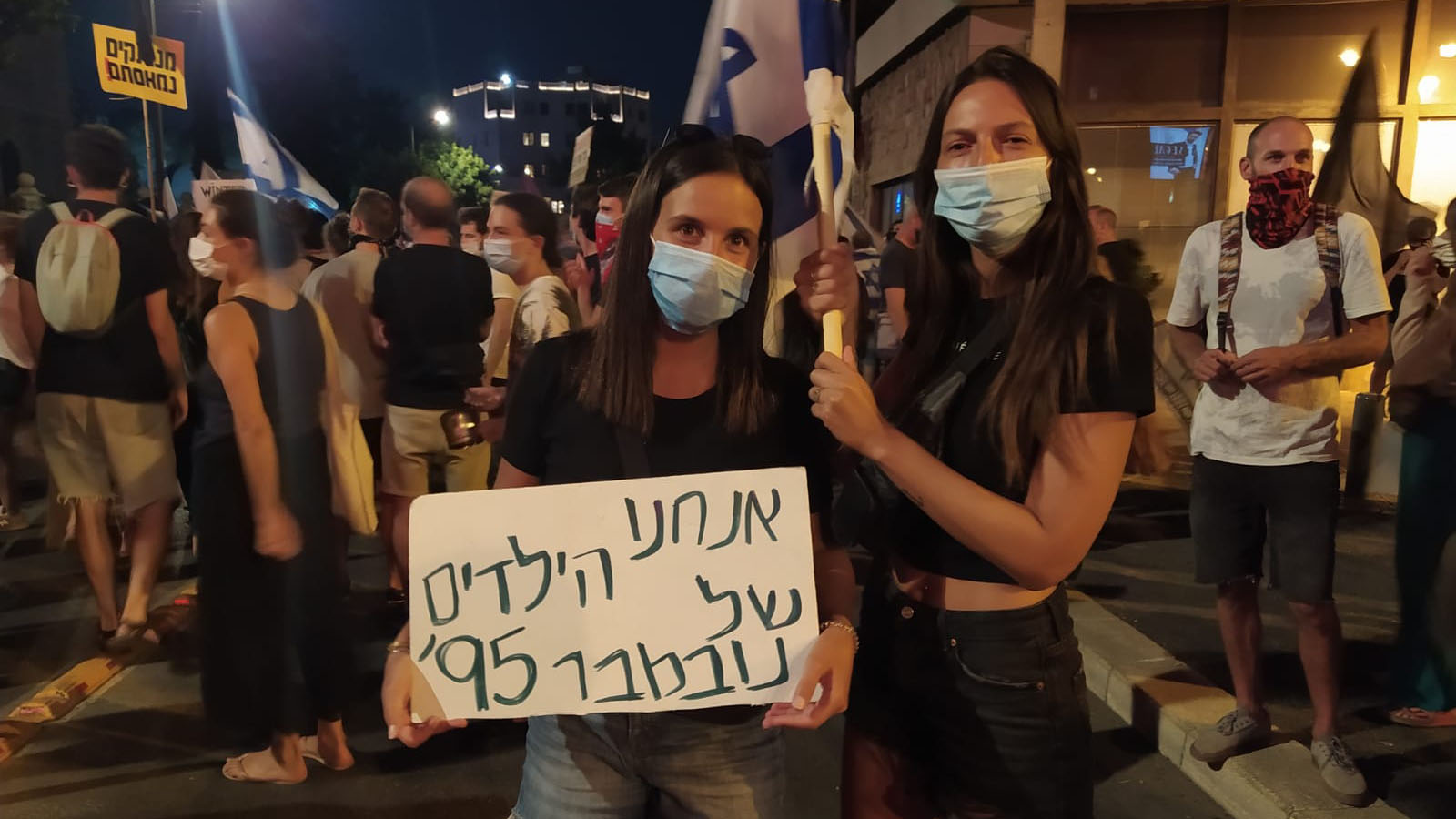
Jasmine, 36, from Tel Aviv, came because there is no equality: “This government has been trampling on the rights of the LGBTQ+ community for years. There is discrimination in adoption, and there are conversion therapies. We are light years away from the light. The protest belongs to everyone, and the queer community also takes part. I served in the army, I did reserve duty, I worked in the security forces for 14 years, there is no reason why I should not be equal to everyone. Although there are MKs from the queer community, they do not represent it, and Ohana is the shame of the community, not its representative."
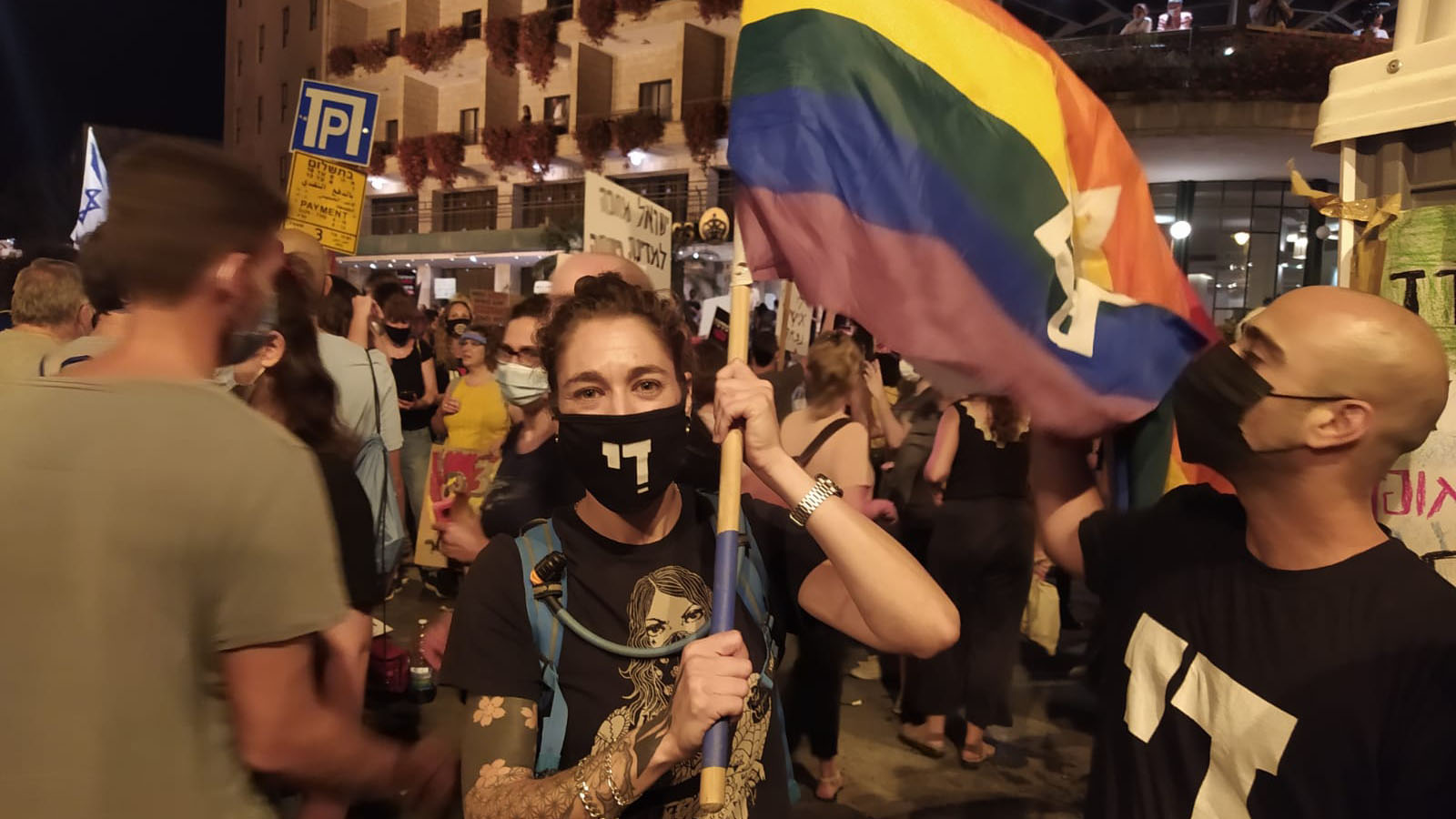
Yaakov, 22, a Jerusalem student, is not a leftist but he came because he supports the protests: "I came here to shake things up. Everyone demands something different, and the general message is shaking things up, that's what will solve the problems. Rent is high, property taxes are high and life is expensive.I think that there should not be a lockdown that sinks the economy. The economic management is not at an adequate level. The pressure on the MKs will increase and they will try to think how to help us. I am a religious person, obviously I am a little different here in the landscape of the protest, but the protesters treat me positively, asking for pictures."
